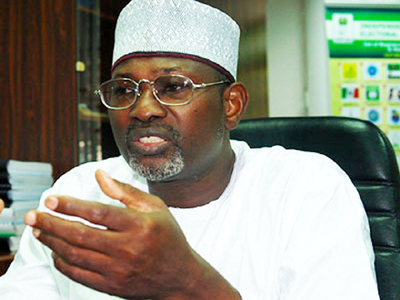Former Chairman of the Independent National Electoral Commission (INEC), Prof. Attahiru Jega, has lamented the growing desperation of Nigerian politicians, warning that their “do-or-die” approach to elections continues to erode public trust and endanger the nation’s democracy.
Speaking on Monday at the joint graduation ceremony of the National Institute for Legislative and Democratic Studies (NILDS) and the University of Benin in Abuja, Jega said Nigeria’s political class had failed to learn from the country’s 25 years of uninterrupted democracy.
Jega, a Professor of Political Science at Bayero University, Kano, said despite institutional reforms and civic education efforts, electoral malpractice, violence, and manipulation still define the nation’s political contests.
“When we see the desperation of these politicians, it is very clear, as former President Obasanjo once said, that they approach elections with a ‘do-or-die’ mentality. Their mindset is: ‘We must win by whatever means necessary,’” he said.
The former INEC boss said such attitudes have weakened the credibility of elections and stalled Nigeria’s democratic growth, leaving the country “literally muddling through democratic development” since 1999.
While acknowledging that no electoral process anywhere in the world is flawless, Jega stressed that integrity in elections is not absolute but “a continuum — from the worst-case scenario to the ideal best-case scenario.”
He traced the culture of political desperation to 2007, when then-President Olusegun Obasanjo publicly described elections as a “do-or-die affair,” a phrase that, according to Jega, reflected the dangerous mindset that has since become entrenched in Nigeria’s political behaviour.
That mindset, he noted, has manifested in violence, vote-buying, ballot-snatching, and prolonged court battles, all of which continue to undermine the people’s faith in democracy.
To restore integrity to the electoral process, Jega called for continuous reforms, stronger institutions, and ethical political leadership. “The credibility of elections has a direct correlation with the quality of representation and governance,” he said.
Meanwhile, the Vice Chancellor of the University of Benin, Prof. Edoba Omoregie, commended President Bola Tinubu for introducing the student loan scheme, describing it as a transformative step toward inclusive education.
“The establishment of student loans has minimised education barriers,” Omoregie said. “It ensures that Nigerian students, regardless of their parents’ financial status, can access funding for their tertiary education in public universities with ease.”

